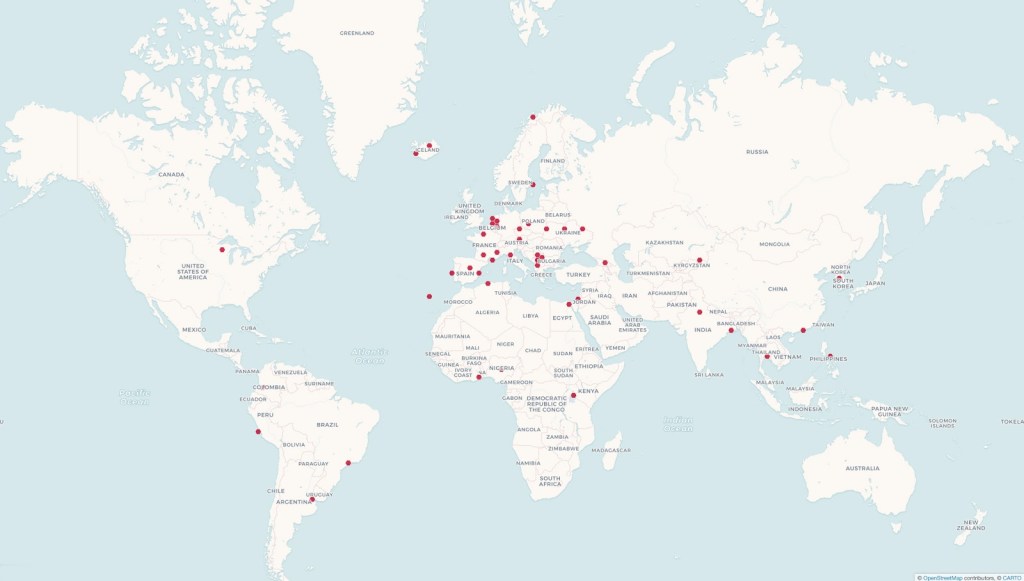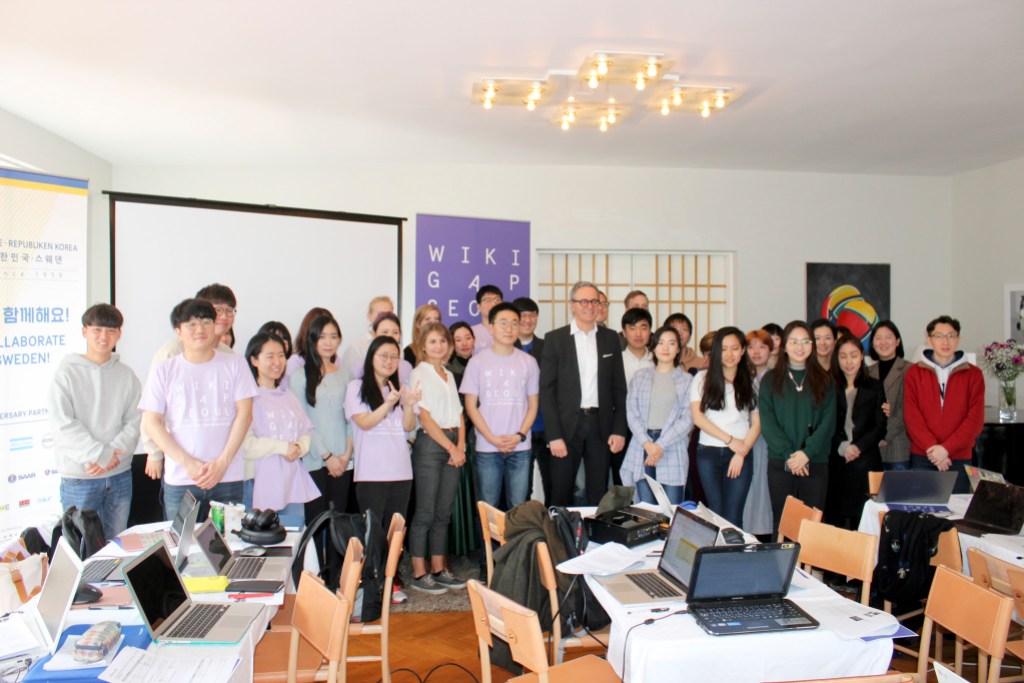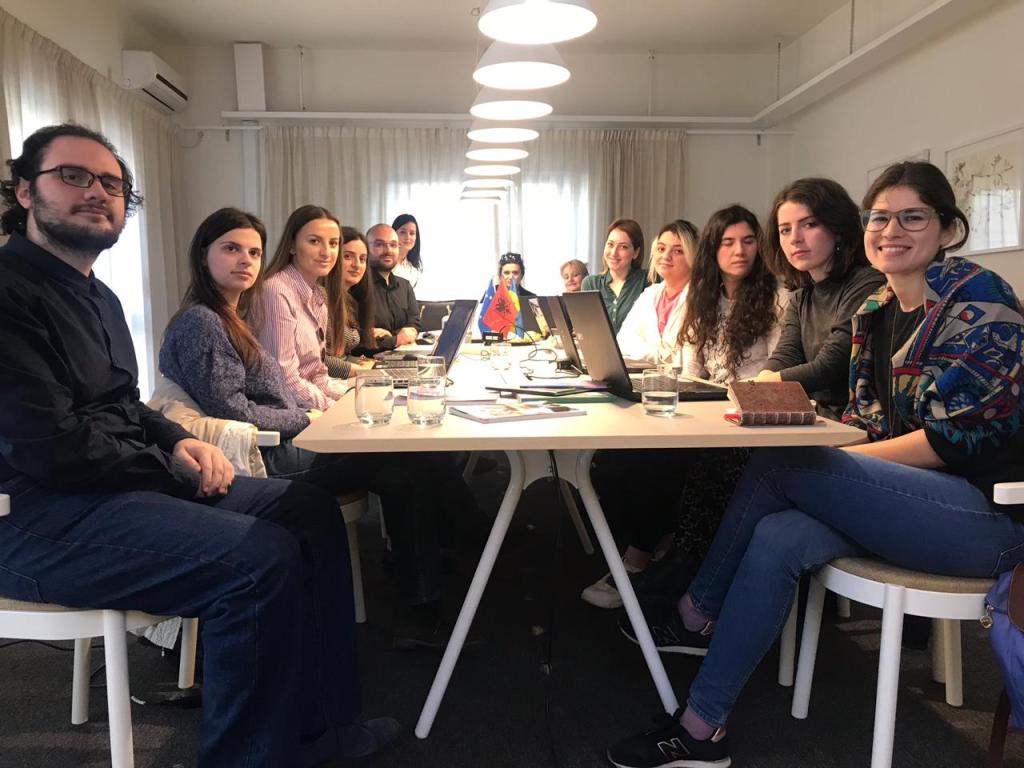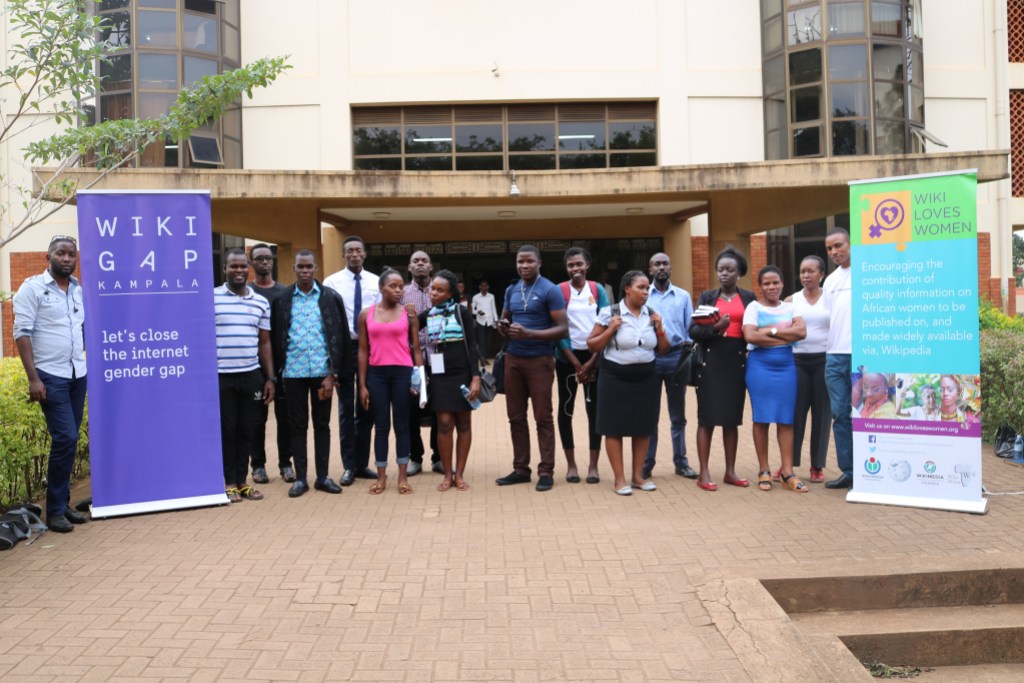The internet has a problem: across much of the world, women’s access, and participation, and representation on the internet are below that of men.*
For online communities like Wikipedia, the internet’s missing women help contribute to our gender gap—both in our content, which is biased towards male biographies, and in our contributors, which are overwhelmingly male.
Of course, the missing women aren’t the only factor in contributing towards our gender gap. As the Wikimedia Foundation’s Executive Director, Katherine Maher, wrote last October, “Wikipedia is by design a living, breathing thing—a collection of knowledge that many sources, in aggregate, say is worth knowing. It is therefore a reflection of the world’s biases more than it is a cause of them.”
But even though some of the problem is out of our hands, this doesn’t mean we can’t do anything about it.
• • •
On International Women’s Day last month, UNESCO, the Swedish government, volunteer Wikipedia editors and Wikimedia affiliates (including Wikimedia Sweden (Sverige) teamed up with local organisations to train women how to edit Wikipedia and to write more women into history.**
In total, sixty events were hosted in thirty-five countries, ranging from France to Nigeria to Bangladesh. Over 650 people participated and added 2.6 million words to Wikipedia. As many as 90 of those took part in the WikiGap Challenge, making significant contributions to over 1,400 articles—including an article about Liette Vasseur, a Canadian scientist who studies the effect of climate change on rural communities.
• • •
You may have missed these events, but that doesn’t mean that you can’t still help out. Here’s some ways to get involved:
- Write about women on Wikipedia: This can take all sorts of forms, from writing a new article from scratch, to improving an existing article, to even translating an article into your own language. That’s a lot, though, and so we’d recommend starting with reading up on of the organized Wikipedia groups that focus on women, including Women in Red (English), Les sans pagEs (French), WikiDonne (Italian), Wiki Loves Women (Africa), and HerStory (Arabic). More on how to participate is available in this blog’s interview with Women in Red members, and if you need help, reach out to @WikiWomeninRed on Twitter or <email address>.
- Write about women online: Are you a journalist or an academic who perhaps already writes too much for your job? No problem! You can still pitch in. Wikipedia relies on journalism and academic papers to cite its content—as quoted above, it’s “a collection of knowledge that many sources, in aggregate, say is worth knowing.” Here’s a list of people you might be able to write about.
- Contribute pictures of notable women. Are you friends with someone who already has a Wikipedia article? Take a good photo of them and add it to Wikimedia Commons, which holds most of the media used on Wikipedia. Here’s a tutorial!
- Join or organise an event: on this or any other topic, our Wikipedia organisations (chapters and user groups) and Wikipedia volunteers run regular events and can help set up events. If there’s none near you, you could consider setting up your own event—here’s one instruction booklet.
Have additional questions? We’re more than happy to help. Please reach out to Wikimedia Sweden’s Mia Jacobsson at mia.jacobsson[at]wikimedia.se.
Isla Haddow-Flood, WikiFundi
Florence Devouard, WikiFundi
Mia Jacobsson, Project Leader, Learning and Education, Wikimedia Sweden
John Cummings, Wikimedian in Residence, UNESCO
Notes
*See 2017 data from the International Telecommunications Union, which also says that the “proportion of women using the Internet is 12% lower than the proportion of men using the [i]nternet worldwide.”
**These included a plethora of organized Wikipedia groups, such as WikiGap, Les sans pagEs, Wiki Loves Women, and HerStory.





Can you help us translate this article?
In order for this article to reach as many people as possible we would like your help. Can you translate this article to get the message out?
Start translation